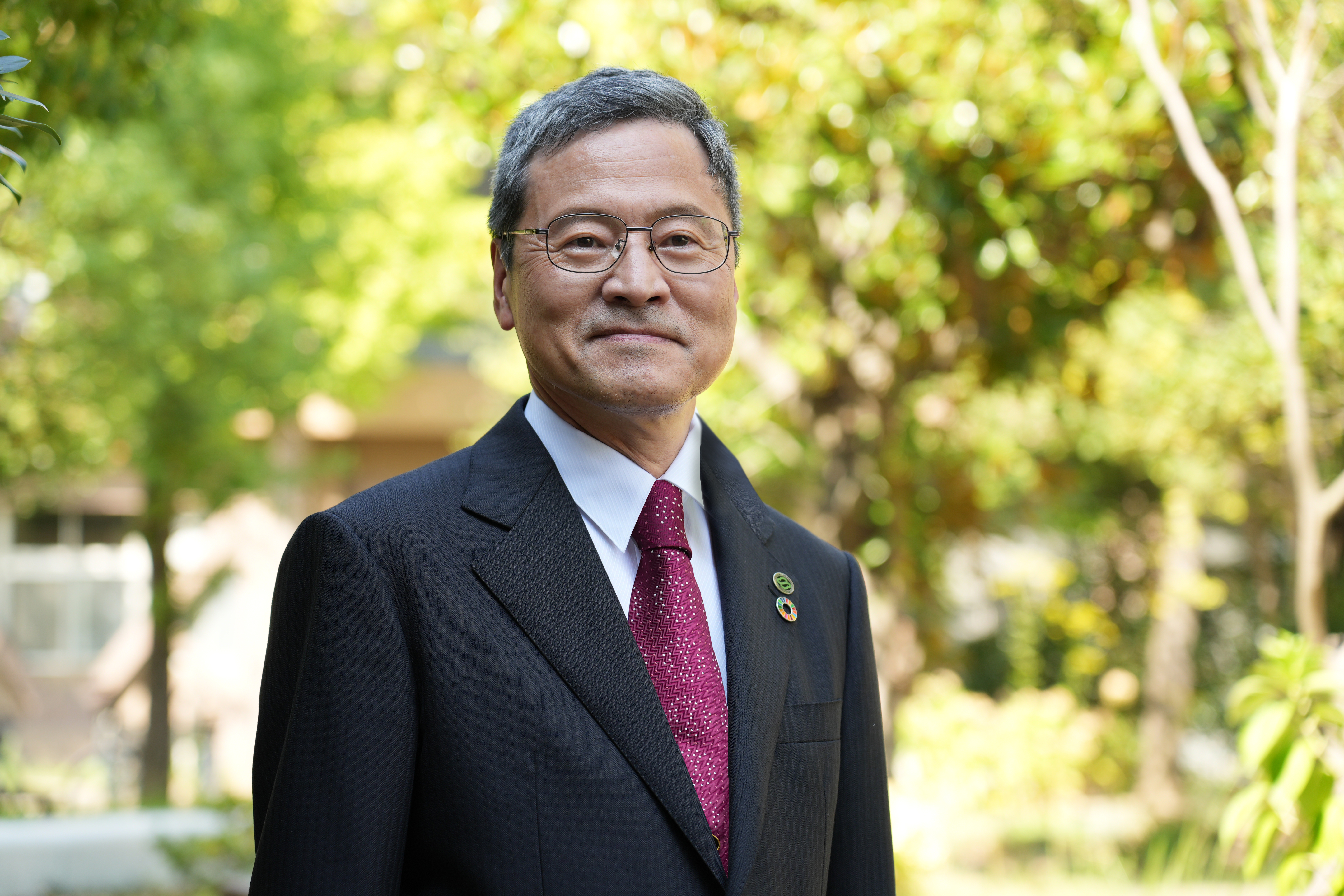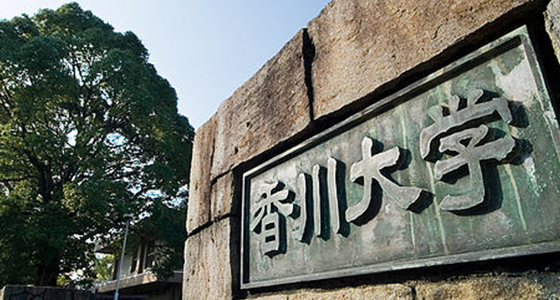Message from the President

Ueda Natsuo
President, Kagawa University
Warm greetings to all prospective international students and researchers!
I am Ueda Natsuo, President of Kagawa University, a national university in Kagawa Prefecture. It is my pleasure to welcome all international students and researchers who are interested to study or to conduct research at Kagawa University.
Kagawa University boasts six faculties and seven graduate schools, currently educating about 5,600 undergraduate students and around 800 graduate students. The history of Kagawa University dates back to 1949, when it was founded as a national university with two faculties: the Faculty of Economics, which originated from Takamatsu College of Economics, and the Faculty of Education, which was based on the Kagawa Normal School and Kagawa Normal School for Youth. Subsequent expansions led to the establishment of the Faculty of Agriculture in 1955, the Faculty of Law in 1981, and the Faculty of Engineering in 1987. Furthermore, in 2003, Kagawa University was reborn as the new Kagawa University through a merger with Kagawa Medical School, founded in 1980. With the enactment of the National University Corporation Act in 2004, it became the National University Corporation Kagawa University.
Kagawa University has been reforming its educational organization in response to societal needs. Regarding undergraduate education, in 2018, we established the Faculty of Creative Engineering, restructured the Faculty of Economics, and introduced the Department of Clinical Psychology in the Faculty of Medicine. The newly established Faculty of Creative Engineering, based on the Faculty of Engineering, focuses on nurturing engineers with a rich sensibility who can create value from the user's perspective. The restructured Faculty of Economics now trains individuals capable of contributing to regional revitalization starting with tourism, as well as playing active roles in the globalized era, covering foundational economic areas such as economics, business, and finance. The Department of Clinical Psychology is a pioneering department in a national university's Faculty of Medicine, aiming to train psychological professionals with a medical background.
For graduate schools, in 2022, we integrated parts of the Graduate Schools of Law, Economics, Education, and Engineering to launch the Graduate School of Science for Creative Emergence's Master's Course. Furthermore, we will introduce the doctoral program for this graduate school in April 2024. While the Master's Course offers education and research on a broad spectrum of themes from regional revitalization to global challenges, the new doctoral program aims to deepen specialized fields as well as to foster "comprehensive knowledge" that transcends existing frameworks by integrating natural sciences with humanities and social sciences. Additionally, in 2020, the Graduate School of Medicine introduced a Master's Program in Clinical Psychology, aligning with the undergraduate Department of Clinical Psychology, to train individuals aiming for national certification as clinical psychologists. In 2022, the Division of Nursing Science initiated its doctoral program. After a significant reorganization in 2018, the Graduate School of Agriculture continues to educate professionals in a wide range of sciences, including life, organisms, environment, and resources, while imparting the research philosophy cultivated from Kagawa University's renowned rare sugar research.
As our lifespans extend and life planning becomes more multi-phased, the momentum for lifelong learning is increasing, even for those who have already entered society. While Kagawa University's Graduate School of Management has produced numerous MBA graduates from the working population, all our graduate schools, including the Graduate School of Education’s Advanced Teaching Professionals Program, are widely open, offering an environment for professionals to relearn and challenge themselves. As a hub of knowledge in the region, Kagawa University collaborates with industries, local governments, and local communities. Through the "connections and bonds" of researchers from diverse backgrounds, we strive to foster individuals who can create unprecedented values and contribute to building a resilient and happiness-filled local society while advancing research.

